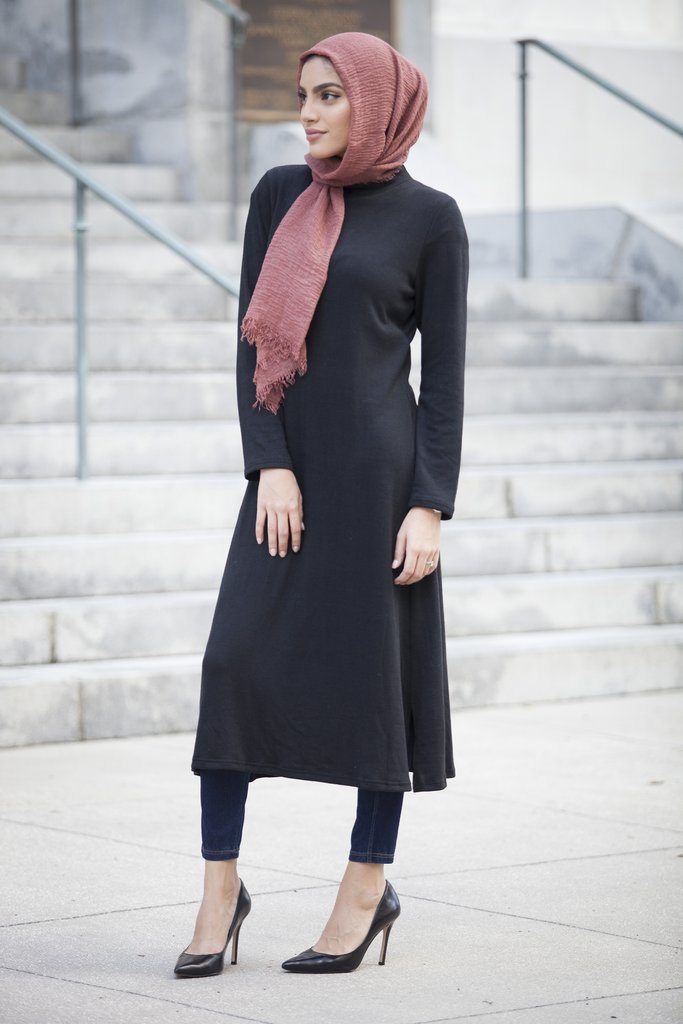
Arati Menon
Feb 2, 2018
Macy’s to launch modest clothing collection aimed at Muslim and non-Muslim consumers

Arati Menon
Feb 2, 2018
Macy’s has just announced a retail partnership with Verona Collection, a boutique specializing in modern Islamic clothing. Starting February 15, Macy’s stores around the U.S. will sell a curated selection of modest ready-to-wear fashion, including hijabs.

The collection has been designed by Verona’s founder, Lisa Vogl, a 2017 graduate of The Workshop at Macy's, the U.S. retailer's minority-owned business development program.
"We want to nurture and support minority- and women-owned businesses to build their capabilities and become the next generation of retail partners," said Shawn Outler, Macy's executive vice president - Licensed Businesses, Food Services and Multicultural Initiatives, in a press statement.
Traditionally, when it comes to Muslim-friendly apparel the mainstream U.S. fashion industry has missed a trick or two.
The underserved demand was evident in the way a denim headscarf launched by American Eagle last year sold out within two weeks.
In December, sportswear giant Nike test launched its first-ever performance hijab specifically engineered for female Muslim athletes. It's currently sold out, and is expected back in stock in April.
Retailers like DKNY have released one-off collections during the month of Ramadan and Eid. Even luxury major Dolce & Gabbana has designed headscarves and coordinated abayas from their signature fabrics. Most collections however, target Muslim customers in the burgeoning Middle Eastern markets, where a young and growing middle class includes fashion-forward, luxury consumers.
In America, Muslim women have often been forced to shop online from other parts of the world.
Islam is expected to be America's second largest religion by 2050. While not all Muslim women choose to wear abayas or hijabs, Muslim women and girls are a growing retail niche.
The global Muslim consumer spend on fashion is estimated to be worth $464 billion by 2019, according to a report in Campaign. The spend on cosmetics in the same period is projected to be $73 billion.
The U.S. cosmetics industry, spurred on by Muslim beauty influencers, is becoming more responsive to the women who don’t see themselves represented in mainstream beauty products. One of the bigger trends in the last few years has been the rise in halal beauty — products procured and manufactured under Islamic Sharia law.
And the global halal cosmetics market is expected to be 52.02 billion USD by 2025, according to consulting firm Grand View Research.
Late last year, as Fashion Network reported, Chicago-based 786 Cosmetics launched their debut halal nail polish brand. Earlier, L.A.-based Orly also launched a halal collection, even giving each nail colour a tongue-in-cheek Muslim name like 'What the Fatima' or 'Ig-Noor the Haters'.
Often, with Islamic fashion and beauty products there’s a spillover effect in the market — non-Muslim consumers who adopt longer, loose clothing or Halal cosmetics as a matter of personal choice.
A few years ago, the company hired Japanese-British designer Hana Tajima to design their first Muslim clothing collection for Southeast Asian markets. Today, the collection is available at Uniqlo flagships around the world, including in the U.S. Uniqlo no longer markets the collection as ‘Muslim’ or ‘modest’ — it is just the ‘Hana Tajima Lifewear ‘collection.
Copyright © 2024 FashionNetwork.com All rights reserved.

























